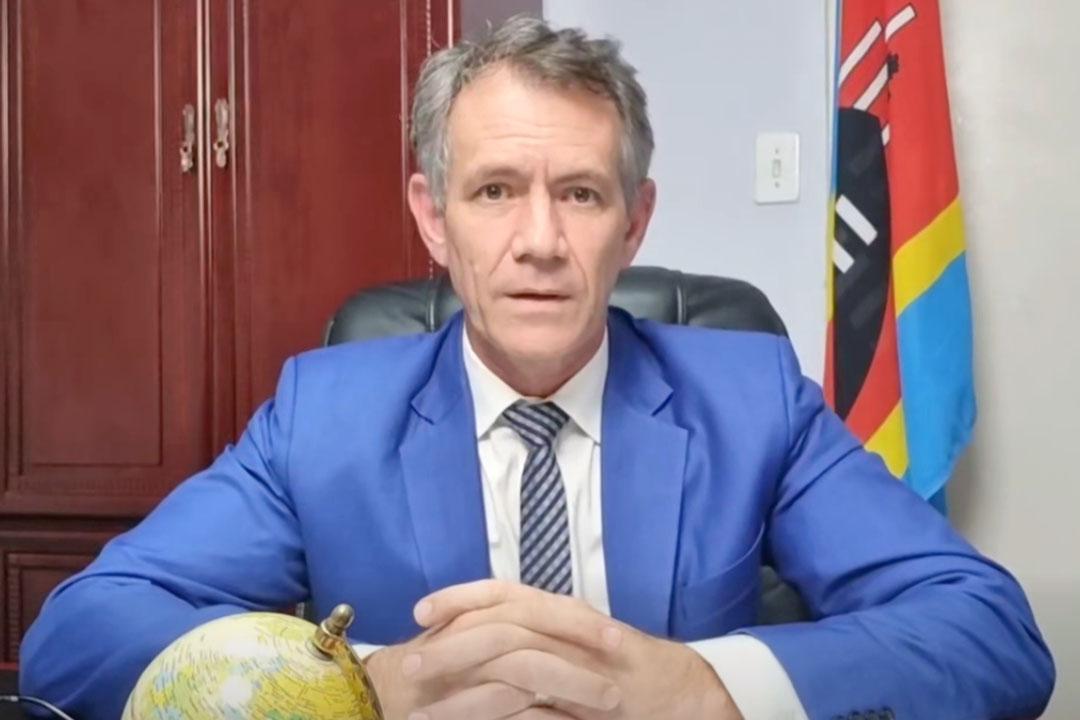Africa-Press – Eswatini. The Ministry of Finance has announced a significant increase in the value of goods that personal travellers may bring into the country without formal declaration, raising the threshold from E1 000 to E10 000.
The new limit will come into effect on Friday, 28 November 2025 — coinciding with Black Friday, one of the busiest shopping days of the year.
The announcement was made by Minister of Finance Neal Rijkenberg during the Finance in Focus platform, where he explained that the adjustment was intended to ease border processes and reduce challenges faced by ordinary travellers.
According to the minister, Government observed that many travellers experienced difficulties when declaring lower-value goods, particularly due to poorly printed receipts or documentation that did not clearly indicate the details required by border officials. This often resulted in confusion, delays, or the perception that travellers were attempting to conceal goods.
Rijkenberg stressed, however, that all travellers must continue to declare goods purchased outside the country, regardless of value. He emphasised that receipts remain necessary for verification, even when the total value of goods falls below the new E10,000 threshold.
“Even if your goods cost less than E10 000, please keep your slips and declare them at the border,” he said. “There will be no VAT charged on those items. Officials simply need the receipts to confirm the purchase.”
The minister illustrated this with an example: a traveller who buys goods amounting to E2 500 should retain the receipts and present them to border officials as proof of purchase. He reiterated that no value-added tax (VAT) would be charged, even if the receipts are faint or poorly printed, provided they can be verified.
For goods exceeding the E10 000 limit, such as a fridge purchased for E12 000, Rijkenberg clarified that travellers would still not necessarily pay additional taxes. Instead, they must present proper documentation showing that tax was paid at the point of purchase. This documentation must include the buyer’s full details, such as name, physical address, passport copy with the relevant stamp, tax number, and any other required identifiers.
“The receipt has to show the VAT paid on the good,” he said. “Once that is clear, the traveller simply declares the item without incurring further charges.”
Rijkenberg further noted that the new threshold applies strictly to personal travellers and is not intended for commercial importers.
He explained that the policy shift offers two key benefits to the country. First, it enhances Eswatini’s ability to claim VAT refunds from revenue services in countries where the goods were purchased. Secondly, it contributes positively to the Southern African Customs Union (SACU) revenue pool. Since SACU income is distributed based on the volume of trade recorded, improved compliance and accurate declarations strengthen the country’s share.
“The more trade Eswatini conducts with other SACU member states, the higher our SACU receipts,” he said, adding that the increased threshold is expected to offer relief to many Emaswati who frequently shop across the border.
The minister concluded by encouraging the public to take advantage of the streamlined system while maintaining honest and consistent declaration practices. “This adjustment will make the border experience smoother, but the responsibility to declare remains,” he said. “It is a win for travellers and a win for the country.”
For More News And Analysis About Eswatini Follow Africa-Press







